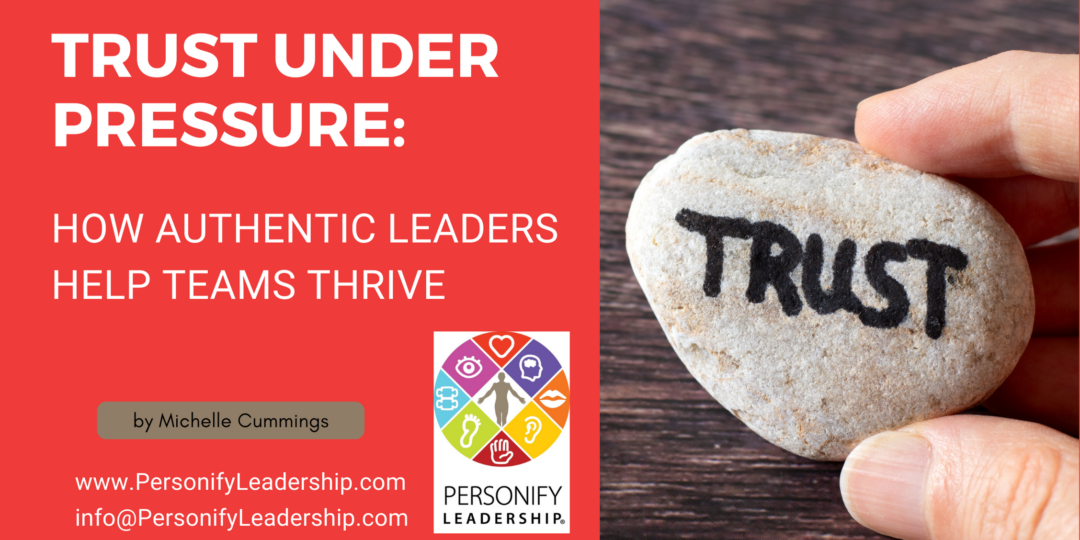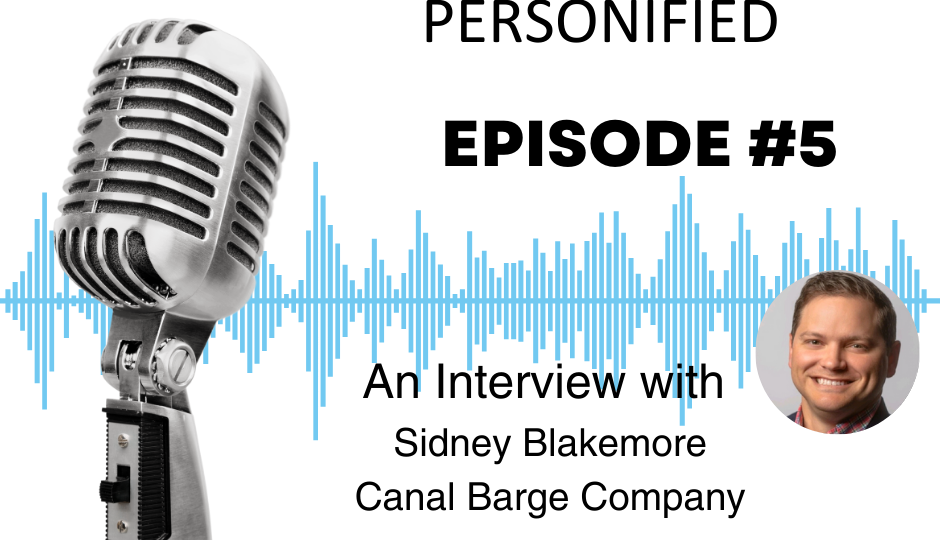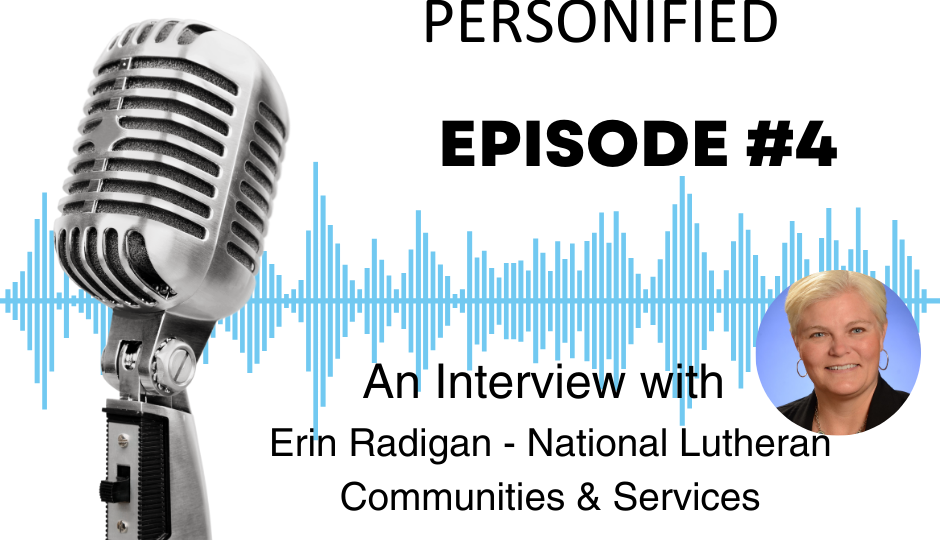The Cost of Stress-Driven Absenteeism & The ROI of Emotional Agility
- Apr 11, 2025
- By personifyadmin
- In Newsletters
- 0 Comments
The Mind of a Leader and the ROI of Emotional Agility
by Paul Cummings
Stress is an invisible tax on performance. It drains energy, clouds decision-making, and drives people to stay home. When stress builds, absenteeism rises. That loss in time and productivity hits the bottom line in any business. But when leaders learn to manage pressure with agility, they create a work environment that is steady, responsive, and focused. The outcome is a real and measurable drop in absenteeism.
Stress is part of work. The problem is not the pressure itself, but how people respond. Leaders who stay composed under pressure, shift quickly between emotions, and guide their teams through uncertainty create cultures that can adapt. This ability to adjust and recover is what agility looks like. It keeps people grounded. It keeps people present. And it saves money.
The Cost of Stress-Driven Absenteeism
Most employees take around six unscheduled days off per year due to stress. Each absence costs about $300 per person per day when factoring in lost productivity and disruption. On a team of 100 employees, that adds up to $180,000 a year. Much of this comes from stress that spreads through poor leadership habits like unclear direction, constant urgency, or unmanaged tension.
Now consider the shift when leaders know how to manage stress. They stay composed. They take time to reset before reacting. They check in with their teams. When leaders do this consistently, their teams follow. People feel more supported and less overwhelmed. The stress is still there, but it no longer controls the room.
Reducing absenteeism from six to four days per employee gives back 200 days of work. At $300 per day, that’s a $60,000 gain! All from more agile behavior at the top.
Agility in Daily Practice
Agile leaders manage stress in real time. They notice rising tension in themselves and in others. They adjust expectations when pressure is high. They listen before they speak. This creates space for teams to stay steady and engaged.
This also changes how people feel about coming to work. A calm environment invites people to stay present, a reactive one pushes them away. Teams led with agility take fewer unplanned days off, solve problems faster, and support each other more.
One manager shared with us that her team had regular Monday absences. After adding a five-minute morning check-in to talk about pressure points, the pattern changed. Absences dropped. People said they felt more seen and less isolated. That is the power of a small, consistent shift.
Why It Pays Off
People take time off when they feel stuck or unsupported. Agile leadership helps them feel capable and valued. It brings clarity, pace, and steadiness. That lowers the stress load and makes the workplace a safer place to perform.
This is not about adding another program or policy. It is about leaders showing up with the right mindset. That mindset creates cultures that adapt instead of react.
The Value Is Clear
You cannot remove stress from work, but you can change how people handle it. When leaders build emotional agility, absenteeism goes down. Performance goes up. The numbers prove it. The culture reflects it. And the organization benefits in every way that matters.
Agility is not just about being fast; it’s about being ready. It’s about recovering with purpose. And it is a skill that pays for itself.
If this resonates, the Mind of a Leader module in our Core Program is where the shift begins. It helps leaders build the emotional agility described here—staying composed under pressure, choosing their mindset, and creating calm in the chaos. When leaders start with awareness and lead with intention, they don’t just manage stress—they model resilience. That mindset becomes the culture. And the results speak for themselves.
Spot the Drain Early: A Leadership Tool for Unsticking Teams
- Apr 03, 2025
- By personifyadmin
- In Newsletters
- 0 Comments
By Michelle Cummings
One of the biggest challenges leaders face is knowing how to move a team forward when momentum stalls. In our Eyes of a Leader module, we help leaders develop a clear, compelling vision—and just as importantly, identify what might be pulling their team off course. This is where the Drain Model, developed by Dr. Carl Larson and Frank LaFasto, becomes such a powerful leadership tool. Based on over a decade of research with thousands of teams, their model doesn’t just explain what slows teams down—it reveals why.
At the heart of the Drain Model is this idea of energy and focus. Larson and LaFasto describe three types of energy that a team needs to reach its goals: Mental, Physical, and Spiritual. Mental energy is your team’s collective knowledge and problem-solving ability. Physical energy is the stamina to do the work. But spiritual energy? That’s the one we overlook most often. It’s the emotional drive, the passion, and the shared commitment that keeps people connected to the goal—and to each other.
Here’s the part that really stands out to me as a leader: you can assign tasks that require mental and physical energy. But you can’t demand spiritual energy. It doesn’t come from authority—it comes from inspiration. That kind of energy is influenced by how well a leader connects to their team, how clearly they communicate purpose, and how they show up when the pressure is on. If your team is feeling drained, chances are it’s not just about burnout—it’s about disconnection from purpose.
This is why clarity of vision matters so much. According to the research, two things must happen for a team to move forward: First, the goal must be clear. Second, all three types of energy—mental, physical, and spiritual—must be aligned toward that goal. If even one of those is missing or scattered, the team will stall, and progress will slow. Leaders who can clearly communicate the destination and rally energy around it are the ones who create sustainable movement.
In our Eyes module, we challenge leaders to look beyond what’s visible. If your team seems distracted, low-energy, or off track, don’t just push harder. Pause. Ask yourself: Is the goal clear? Is the energy aligned? And most importantly—am I inspiring spiritual energy, or just assigning tasks? These questions create the space for awareness, alignment, and renewed focus.
The Drain Model reminds us that leadership isn’t just about doing—it’s about energizing. Teams don’t move because we push them. They move when they feel connected, focused, and inspired. So the next time your team feels stuck, don’t force your way through. Clear the path, refocus the energy, and lead with vision that lifts people—not just leads them.
Watch this inspiring interview I conducted with Dr Carl Larson on The Drain Model, and how it connects to our Personify Leadership Core Program.
By Michelle Cummings
Founder, CEO & Chief Creative Officer
Personify Leadership
Bridging the Intention–Behavior Gap
- Apr 03, 2025
- By personifyadmin
- In Newsletters
- 0 Comments
We all want to believe that good intentions make good leaders. And intention does matter—it’s where leadership begins. In our Heart of a Leader module, we focus on leading from a place of care, connection, and integrity. But intention alone doesn’t always shape the experience others have of us. That’s where the gap begins—the space between what we meant and what actually happened. That’s the intention–behavior gap, and we’ve all felt it on both sides.
Research by Rhodes, Pfaeffli Dale, and Mansell explores this very gap, showing that the strength of an intention plays a key role. Strong intentions are more likely to predict consistent behavior, and they tend to hold steady over time. But they also come with a risk: when an intention becomes too rigid, it can close us off to feedback or new perspectives. A leader may be so focused on achieving a goal that they stop noticing how their behavior is landing—or whether it still reflects their original values.
That’s why, in the Heart module, we teach leaders to pay attention to their signals—tone, posture, word choice, and energy. These are the silent messengers that often speak louder than our intentions. You may want to support your team, but if your voice is tense or your body language feels rushed, your intention won’t come through. This is where the Signal Check tool comes in. It’s a simple pause to ask, “What do I want people to feel right now, and does my presence reflect that?”
Another key strategy is using Intention to Impact thinking. Instead of just setting a goal, we encourage leaders to ask: What experience do I want others to have? This kind of reflection helps shift the focus from task to relationship, from outcome to impact. When we connect our intentions to how others feel and perform, our leadership becomes more human—and more effective.
And of course, none of us will get it right all the time. We will miss the mark. What matters most is noticing when our signals don’t align with our purpose and choosing to realign with intention. That choice, made moment by moment, is where trust is built and credibility is earned. Leaders who regularly reflect, adjust, and lead with heart make it easier for their teams to do the same.
Bridging the intention–behavior gap takes more than good ideas—it takes awareness and practice. But when leaders are willing to pause, reflect, and stay grounded in what truly matters, their actions begin to match their values. And that’s when leadership becomes transformational—not just for the leader, but for everyone they influence.
By Michelle Cummings
Founder, CEO & Chief Creative Officer
Personify Leadership
Trust Under Pressure: How Authentic Leaders Help Teams Thrive
- Apr 03, 2025
- By personifyadmin
- In Newsletters
- 0 Comments
Trust is the foundation of leadership—but it’s tested most when pressure is high. In the Heart of a Leader module from the Personify Leadership Core Program, leaders are taught to lead with clear intention: to act in the best interest of others and stay aligned with their values. Authenticity is not just about being “real”—it’s about showing up in a way that reflects who you are and what you stand for, even in difficult moments.
When stress rises and uncertainty creeps in, teams begin to look to their leader for cues. This is when trust is either reinforced or quietly eroded. The Heart Module challenges leaders to ask, “What signals am I sending?”—through tone, posture, presence, and action. If those signals match a leader’s stated intention, it builds stability and confidence. If they don’t, even small gaps in behavior can shake a team’s sense of safety.
Leaders who are aware of their signals and take time to reflect before acting are more likely to stay in alignment. When team members feel that their leader is grounded, honest, and consistent—even in high-stakes moments—they feel safer, more motivated, and more willing to speak up. That emotional safety is key to team engagement and performance. As the module teaches: people don’t just hear your intention—they feel it.
Of course, no leader gets it right every time. When trust is strained, it doesn’t have to stay broken. Leaders have many opportunities for making things right—starting with listening fully, owning the impact, and clarifying your true intention. Leaders who take responsibility and follow through with consistent actions don’t just repair relationships—they deepen them.
In times of pressure, your authenticity becomes your greatest tool. Teams thrive when they can trust that their leader’s values won’t disappear under stress. Leading with intention, acting with integrity, and staying present in the hard moments—that’s how authentic leaders build lasting trust.
~Michelle Cummings
Founder, CEO and Chief Creative Officer
Personify Leadership
Leadership isn’t just about what you say. It’s about how you show up—every day, in every interaction. Your body language, tone, and energy send signals long before your words land.
Think about it: Have you ever walked into a room and felt tension, even before anyone spoke? Or trusted someone more simply because they looked calm, open, and engaged? These are leadership signals. And people are reading them, whether you mean to send them or not.
Your team is constantly asking themselves:
- Can I trust this person?
- Do they mean what they say?
- Do they care about me?
If your tone doesn’t match your intention—or your posture shows frustration instead of curiosity—you may be sending the wrong message. That’s when misalignment happens, and trust starts to erode.
Try This:
Before your next one-on-one or team meeting, pause.
Ask yourself:- What’s my intention in this moment?
- Does my body, face, and voice reflect that?
Even a 30-second reset can shift how others receive you.
Leaders who are aware of their signals—and adjust them to match their values—create safety, trust, and stronger relationships.
So, how are you showing up today?
Leading with Heart: The ROI of Authentic Leadership
- Mar 25, 2025
- By personifyadmin
- In Newsletters
- 0 Comments
“People don’t care how much you know until they know how much you care.” – John C. Maxwell
Great leadership isn’t just about strategy, goals, or results. It’s about people.
When you lead from the heart, you create a culture where trust, passion, and purpose thrive—and that’s where real success happens. Have you given much thought to what bad leadership costs organizations?
The Heart of a Leader: The ROI of Authentic Leadership
In today’s competitive business landscape, leadership is often reduced to performance metrics and revenue targets. While these are essential, they overlook a critical foundation—intentional leadership that fosters trust, engagement, and purpose. At the core of this approach is the Heart of a Leader, a key principle in the Personify Leadership curriculum.
Leading with Heart: More Than Just a Concept
Leading with Heart isn’t about sentimentality; it’s about deliberate action that builds trust, strengthens teams, and drives long-term success. Authentic leadership goes beyond transactional management, cultivating real connections with employees, customers, and stakeholders. When leaders act with integrity and intention, they inspire meaningful performance improvements that directly impact the bottom line.
The Business Case for Intentional Leadership
In an era where employees seek purpose over paychecks, leadership style plays a decisive role in organizational success. Recent research from Gallup shows that companies with engaged teams outperform competitors by 147% in earnings per share. This success stems from leaders who create psychological safety, trust, and a sense of belonging.
Intentional leaders prioritize relationships over transactions, ensuring employees feel valued. This effort leads to higher productivity, lower absenteeism, and greater innovation. Moreover, turnover—a costly challenge for businesses—decreases significantly when leaders demonstrate care and recognition. Considering that replacing an employee costs 50% to 200% of their salary, the financial benefits of strong leadership are undeniable.
Employee Engagement as a Strategic Advantage
The best organizations understand that engagement is not a perk but a competitive edge. Leaders who invest in employee well-being and professional growth create workplaces where people are motivated to perform at their best.
Recognition is a powerful tool—employees who feel appreciated are likelier to stay, collaborate, and take initiative. A simple thank-you or public acknowledgment can significantly boost loyalty and productivity. Additionally, trust-based leadership reduces workplace stress, a leading cause of burnout and disengagement. Organizations with people-first cultures report up to 70% lower stress-related absenteeism, ensuring employees remain present and invested.
Beyond Employees: The Customer and Stakeholder Impact
The impact of intentional leadership extends beyond employees to customers and stakeholders. Organizations with strong leadership values build brand loyalty, enhance reputation, and attract high-value partnerships. Customers who connect with a company’s mission are more likely to remain loyal, advocate for the brand, and increase spending.
Studies show that businesses with ethical leadership retain 23% more customers and generate 21% higher profitability than competitors. Why? Because integrity-driven leadership fosters reliability and trust, making customer experiences more consistent and authentic.
The Measurable ROI of Leading with Intention
Leadership development programs, such as Personify Leadership, equip leaders with the tools to lead authentically and effectively. The return on investment (ROI) is tangible, delivering:
· Lower turnover costs through higher employee retention
· Higher productivity as engaged employees perform better
· Reduced absenteeism and healthcare costs from lower workplace stress
· Stronger customer loyalty and revenue growth through enhanced reputation
In a competitive market, people-first leadership isn’t just the right thing to do—it’s a financial imperative. Sustainable success isn’t just about results; it’s about how those results are achieved.
Final Thoughts: Leadership as a Competitive Advantage
Organizations that foster intentional, heart-centered leadership create workplaces where employees thrive, customers stay loyal, and financial performance soars. Leading with Heart is not a “soft skill”—it’s a strategic necessity.
Great leaders recognize that performance reflects culture, and culture is shaped by leadership. When leaders demonstrate trust, care, and integrity, they create an environment where people contribute, innovate, and stay committed to the company’s mission.
The most significant competitive advantage an organization can have is its people. The best way to maximize that advantage is by leading with intention, Heart, and a commitment to long-term success.
~Paul Cummings, Chief Operations Officer
Leadership Personifed: An Interview with Sidney Blakemore of Canal Barge Company
- Jan 15, 2025
- By personifyadmin
- In Media, Newsletters
- 0 Comments
In this month’s podcast, our CEO Michelle Cummings M.S. had the pleasure of interviewing Sidney Blakemore, PHR with Canal Barge Company, Inc. an organization that has demonstrated a steadfast commitment to leadership development by enrolling hundreds of its leaders in the Personify Leadership Core Program. Sidney shares insights from delivering this impactful training to their mariners. Together, we explore the program’s role in fostering resilience, communication, and leadership excellence in a unique industry setting. Whether you’re a leader navigating challenges or simply passionate about growth, this episode promises valuable takeaways from Sidney’s experiences and the transformative impact of Personify Leadership. View and listen here:
Finding Your Voice: the Unfiltered Power of Leadership Communication
- Nov 05, 2024
- By personifyadmin
- In Newsletters
- 0 Comments
True leadership starts with the courage to communicate openly, with clarity and conviction. But great leaders don’t just speak—they listen, adapt, and make sure their words truly connect. In our Voice of a Leader module, we don’t hold back. We dive deep into what it means to communicate effectively, because your voice shapes your team’s trust, alignment, and ultimately, your success. This is about finding your voice—authentic, unfiltered, and purposeful—and using it to build a culture where everyone feels heard, respected, and inspired to do their best work.
The Voice module within the Personify Leadership program focuses on developing leaders’ communication skills to inspire trust, clarity, and connection within their teams. This module emphasizes the importance of clear messaging and effective listening to ensure that leaders can convey their vision, expectations, and feedback with impact.
At its core, the module teaches leaders to understand and apply the sender-receiver communication model. Leaders learn to tailor their communication style to match the preferences of their audience, especially when interacting with diverse team members. A key tool used in this module is the DiSC assessment, which helps leaders recognize their natural communication styles and adapt accordingly. Through this approach, leaders gain insights into how their words, tone, and body language impact others, enhancing both understanding and rapport within the team.
By the end of this module, leaders are equipped to communicate purposefully and responsively, fostering an environment where team members feel heard, valued, and aligned with organizational goals. The Voice of a Leader is not just about speaking—it’s about listening, adapting, and building a culture of open and effective communication.
Our Personify Leadership course teaches skills in this area, where we focus on being a leader who communicates a message that resonates with those who receive it. Let me know if you are interested in learning more about this; we’d love to talk with you! Our next Open Enrollment class is December 10-11.
Questions to ask yourself:
- Do you adapt your communication style to diverse team personalities?
- How does communicating in a way that resonates with your receiver help build rapport with your team?
- How does understanding the DiSC communication model empower leaders to build stronger relationships with their team members?
If you are interested in building more skills in this area, consider registering for our next Open Enrollment course.
Leadership Personified: An Interview with Erin Radigan of National Lutheran Communities & Services
- Nov 03, 2024
- By personifyadmin
- In Media, News, Newsletters, Video
- 0 Comments
In this month’s episode of Leadership Personified, we’re excited to feature Erin Radigan, Clinical Lead at National Lutheran Communities & Services and a certified Personify Leadership facilitator. Erin joins our host, Michelle Cummings, to discuss her unique approach to integrating Personify Leadership principles in healthcare. From fostering compassionate care to building resilient teams, Erin shares her journey and insights on what it takes to lead effectively in a clinical setting.
Don’t miss this inspiring conversation with a leader who is making a meaningful impact in her field! Personify Leadership is a two-day leadership development program based on 8 core competencies. In this highly interactive and engaging program, your leaders will learn practical and hands-on tools for leading in your organization.
×
At the heart of every high-performing organization is a strong leader – someone who drives the vision, creates the company culture and knows how to call the shots in a time of crisis. Wouldn’t it be great if every company had multiple leaders like that?
Stay up to date.
Join Our Newsletter for the latest Personify Leadership News.
© 2012-2025 Personify Leadership. All Rights Reserved.










Recent Comments